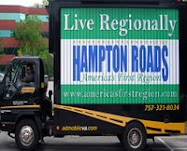
On April 24th, during testimony about the American Clean Energy and Security Act of 2009 before the House Energy & Commerce Committee, the following remarks were made by Newt Gingrich. Mr. Gingrich spoke to these ideas as well during his September 2008 engagement with The Norfolk Forum:
A ROADMAP FOR MORE AMERICAN ENERGY NOW
The best way for us to get started on solving our energy needs is with the same Manhattan Project like urgency that we displayed during World War II....
We can do it all. We can do it now. We can do it for America. This is the American way. We have stuck to this belief for 400 years, and it has made us the most prosperous and freest country in the world.
Let's apply American ingenuity to solving an American problem by developing more American energy now.
Solutions for more oil and natural gas development... (link to items 1-5 at the end of this post)
6. Create public/private partnerships in coastal states to fast track the ability of oil and natural gas companies to develop offshore oil and gas resources. If Congress were to lift the ban on offshore oil and gas development (or at least grant coastal states the right to develop the resources with a plan to share revenue with them), states would move swiftly to set up partnerships that will maximize the best use of oil and gas revenues.
Efforts in Virginia provide a good example. In 2004, two Virginia legislators, Delegate Chris Saxman and Senator Frank Wagner, learned that Virginia manufacturers were warning of the rising costs of energy because of tightening energy supplies. Once they discovered that oil and gas resources exist off Virginia's shores, and that the state could experience rapid economic development from the actual business of energy exploration and development, Saxman and Wagner immediately designed legislation that would have Virginia petition the federal government for permits to drill offshore. In addition, the legislation specified that a significant portion of oil and gas royalties, state fees, and licenses collected by the state would go to improve Virginia's transportation infrastructure, clean up the Chesapeake Bay, and invest in technologies related to new energy production.
The economic potential for Virginia is significant. The oil and natural gas revenue estimated to accrue to Virginia is $13.53 billion dollars over thirty years, or $451 million annually. This is a conservative estimate that could increase with technological advances.
But these are not all the economic benefits that Virginia would reap. In just the Hampton Roads area near Norfolk, it is estimated -- based on experience with the oil and gas industry in Nova Scotia and Louisiana -- that oil and natural gas development would result in around $8 billion in capital investment and 2,600 new, high paying jobs. These new jobs would have an estimated payroll close to $650 million annually. Virginia would thus see $271 million more flow into the state treasury in the form of state and local taxes as a result of this increased economic activity.
This new tax revenue could then be used to fund transportation projects in the Hampton Roads area and throughout the state.
Imagine funding new roads, cleaning up the environment, and making investments in basic research and development science to promote new energy sources - all without raising taxes. How many coastal states besides Virginia would like to achieve that combination of benefits? Coastal states could lower energy costs for their residents as well as the energy costs of fellow citizens across the country, while relieving congestion and cleaning up the environment.
For the full text of comments: http://www.realclearpolitics.com/articles/2009/04/24/gingrich_house_energy_commerce_transcript_96182.html
































No comments:
Post a Comment